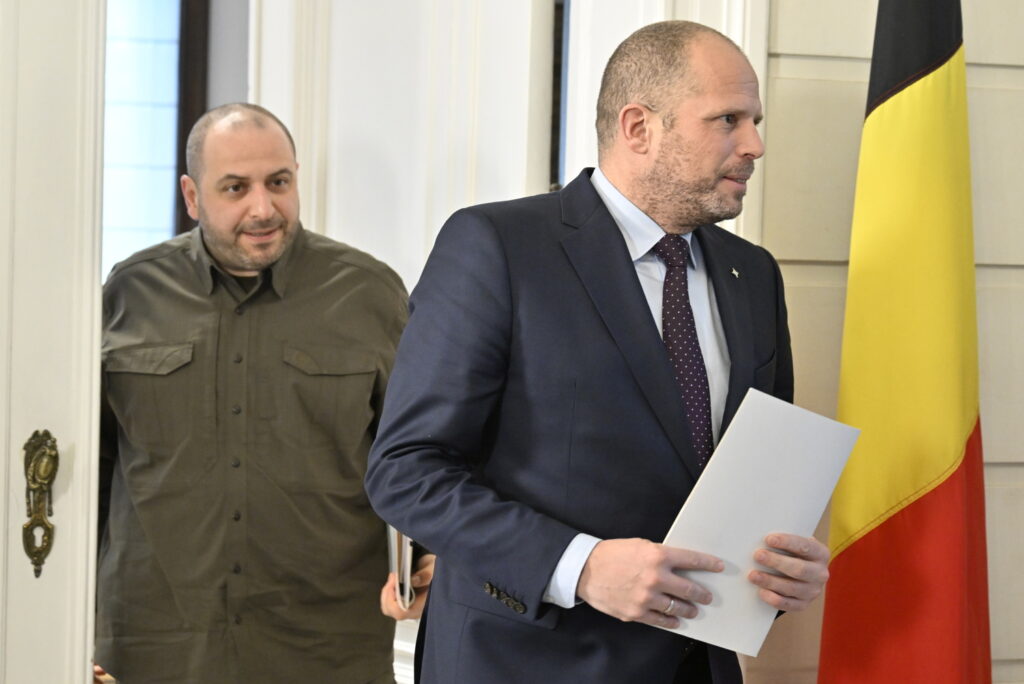Belgium's Federal Government isn't a month old but immediately faces a pivotal moment in the war in Ukraine. Defence Minister Theo Francken (N-VA) has emerged as a key figure and is determined to be the face of Belgium’s support for Ukraine as European leaders meet in Kyiv to mark three years of conflict.
In conversation with his Ukrainian counterpart Rustem Umerov, Francken gave assurances of Belgium’s support and announced plans to visit Kyiv with Prime Minister Bart De Wever. He also endorsed sending Belgian troops as part of an international peace mission. De Wever has had a phone conversation with Ukrainian Prime Minister Denys Shmyhal; a call with President Volodymyr Zelenskyy is expected soon. They aim to send a clear message: Ukraine must be supported in achieving a lasting and accepted peace, with no agreements made solely by the US and Russia.
Despite this commitment, the new government was quickly confronted with reality. On 17 February, following surprising US statements, French President Emmanuel Macron held an emergency meeting with major European countries involved in the conflict. Belgium was not invited but attended a second meeting two days later with other states.
The coalition agreement reached in January does address the conflict, following the previous government’s stance.
“We continue to support Ukraine in its fight against Russian aggression,” the text states. However, questions remain. Militarily, Belgium's government commits to ongoing training and supplying “equipment,” including the delivery of the first F-16s scheduled to be retired by year-end. Belgium will provide thirty of these aircraft by 2028, as per a defence agreement with Ukraine last year.
In sanctions, Belgium plays a leading role. “We maintain and strengthen targeted and effective sanctions against Russia,” the government agreement claims, without providing details. Much of the liquefied gas from Russia passes through the port of Zeebrugge, not directly mentioned alongside financial sanctions.
Related News
- Belgian diamond trade sees 'catastrophic' results
- Antwerp diamond industry wants extra checkpoints for rough stones from Russia
- Over €250 billion of Russian assets frozen in Belgium
Belgium houses Euroclear, a hub for frozen Russian assets currently estimated at €258 billion. However, the new government is treading lightly in this area, as did De Croo's Vivaldi Government. Some countries, notably Ukraine, call for outright confiscation of these assets. But Belgium cites legal and financial reasons not to intervene with the assets. Instead, the government advocates “risk-sharing before an international arbitration tribunal, based on the principle of proportionality”.
Belgium reaffirms its commitment to NATO, with defence poised to be a political focus for the next four years. The country has lagged in defence spending commitments, only reaching 1.3% of GDP since pledging 2% in 2014. The new government aims to hit 2% by 2029 and 2.5% by 2034, though international dynamics may push these targets higher, possibly to 3% or even 5% of GDP. Bart De Wever has warned MPs that “geopolitical circumstances” may necessitate “adjustments”.
Belgium must balance restoring its troubled public finances, increasing military spending, and tangibly supporting Ukraine. The De Croo government allocated €1.21 billion to military support, funded through corporate tax from Euroclear and frozen assets, creating a €1.7 billion fund. The current government has not yet confirmed if it will continue this approach.

